Fast Facts
Location
Commencing
- Townsville: February, July
Fees
$33,906.00^
^estimated annual tuition fee for a full-time study load
Plus Student Services and Amenities feeFee deferral and scholarships available if eligible
Currently displaying fees for 2025, which are subject to change in following years.
Duration
2 years full-time
Entry Requirements
AQF level 7 Biomedical Science or Medical Laboratory Science degree; or equivalent
Course Code
117204
Course detail
Build on your existing medical, biomedical or clinical studies, knowledge and experience with JCU’s Master of Medical Science. You’ll study advanced theories and techniques and learn how to apply them for improving human and animal health in regional, rural, remote and Indigenous community settings.
This Master of Medical Science is flexible and allows you to choose from three majors: Clinical Sciences, Future Leaders in Tropical Research and Medical Laboratory Science. You will have the flexibility to choose your study pathway leading to a career as a Clinical Measurements Scientist, Medical Laboratory Scientist or as a medical research scientist. On your journey you will gain an in-depth understanding of medical science areas such as haematology, clinical biochemistry, microbiology, immunology, bioengineering, pathobiology and pathophysiology and the clinical sciences such as cardiac respiratory and neurophysiology. You will learn how to apply biostatistics and the principles of epidemiology to public health measures in your chosen discipline/major/career.
In your second year of study, you’ll investigate an area of medical science by planning, proposing and implementing a small-scale research project relevant to tropical health and medicine. You will also put your knowledge and skills to the test through professional placements in clinical and medical laboratory settings* such as private or public hospitals and JCU’s state-of-the-art medical laboratory facilities.
As you complete the Master of Medical Science, you will work alongside experts in the clinical and medical laboratory science field; the connections that you make and professional relationships that you form will have the potential to lead to future employment opportunities.
Become a medical researcher, clinical scientist or medical scientist with the knowledge and skills to make a difference to communities in the Tropics. JCU Medical Science graduates are highly sought-after, both nationally and internationally, for their strong skills in promoting health in regional, rural and remote areas.
View the Handbook for a detailed overview of available subjects, as well as pre-placement requirements.
* Clinical Sciences and Medical Laboratory Science majors only
Inherent requirements
Inherent requirements are the identified abilities, attributes, skills, and behaviours that must be demonstrated, during the learning experience, to successfully complete a course. These abilities, attributes, skills, and behaviours preserve the academic integrity of the University’s learning, assessment, and accreditation processes, and where applicable, meet the standards of a profession. For more information please review the inherent requirements for the Master of Medical Science.
Majors
You can choose from three Medical Science majors.
Clinical Sciences
Explore fundamental issues of cardiac, respiratory, sleep, renal and neurological measurement, analysis, and interpretation. Undertake a full year of clinical rotations in professional medical or clinical science laboratories. Autonomously collect and interpret clinical research data and present professional scientific and clinical cases to your supervisors.
Future Leaders in Tropical Research
Make a contribution to the medical sciences by studying and researching your area of interest in medical science for example major parasite groups, develop immunology experiments, and design research proposals in this flexible major. Choose between a specialisation in Biochemistry, Microbiology and Immunology, or Physiology and Pharmacology, plus electives based on your professional interests. Autonomously collect and interpret research data and present professional scientific research results to your supervisors and the broader community.
Medical Laboratory Science
Become a multidisciplinary scientist and study clinically specialised streams - Haematology, Clinical Biochemistry, Histology and Cytology, Microbiology and Immunology and Immunohaematology. Apply your theoretical knowledge by completing professional/clinical placements in diagnostic medical laboratories. Autonomously collect and interpret clinical research data and present professional scientific and clinical cases to your supervisors.
JCU Master of Medical Science graduates are equipped with specialist skills and are employed in a variety of medical laboratory settings.
You could work as a research scientist in all areas or as a clinical scientist working in areas such as cardiac scientist, respiratory scientist, sleep scientist, neuroscientist or renal physiology. You could also work as a medical laboratory scientist working in areas of pathology, clinical microbiology, haematology, transfusion science, clinical biochemistry, histopathology, immunology, serology or laboratory management.
Graduates of the medical laboratory science major are eligible to apply for membership with the Australian Institute of Medical Scientists (AIMS).
Graduates (Clinical Sciences major) may be eligible for membership with Australian Council of Clinical Physiologists (ACCP) or with Professionals in Cardiac Sciences Australia (PICSA).
Estimated annual tuition fee: $AUD33,906.00
A variety of Scholarships are available to suit different student types.
Learn more about fees and financial support
Complete an online application through our Online Application Portal.
Real stories
-
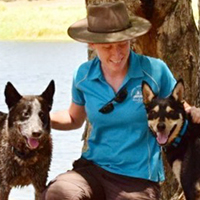
Student
Elizabeth Brimson
Master of Medical Science, majoring in Medical Laboratory Science
Everyone at JCU, from lecturers to technical staff, have been really supportive and shared my enthusiasm about my project. It’s been fantastic to have the flexibility in my course to let me shape it to meet my needs and goals.
-
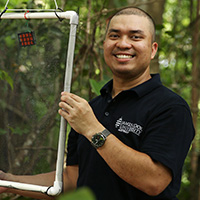
Alumni
Boni Sebayang
Master of Medical Science, majoring in Future Leaders in Tropical Research
When I wanted to study tropical health research, James Cook University was my first choice. I made the best decision of my life! Meeting and learning from JCU lecturers who write the journal articles that you read has been an exceptional experience.
-
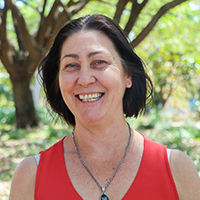
Lecturer
Associate Professor Donna Rudd
Course Coordinator, Medical Sciences
Our focus within Biomedical and Molecular Sciences at JCU is developing a scientific health workforce for the region and remote areas. We train multidisciplinary scientists capable of working independently to provide a comprehensive service and support.
-
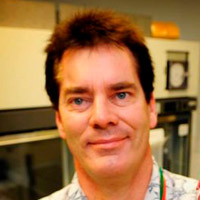
Employer
Michael Wilhelm
Group Laboratory Manager, Pathology Queensland
The JCU MLS graduates are one of the most highly sought after Medical Scientists for employment in Diagnostic Pathology Services. We have many JCU scientists working for Pathology Queensland over a wide range of roles, ranging from entry level to operations manager.
-
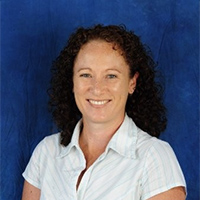
Employer
Megan Harbourne
Statewide Clinical Education Program Manager, Department of Health, QLD
JCU graduates have a really strong focus on the patient journey, probably because they have developed interpretation and analysis skills across multiple sciences. They are great at understanding the pathophysiology of the various chronic diseases that impact our patients.